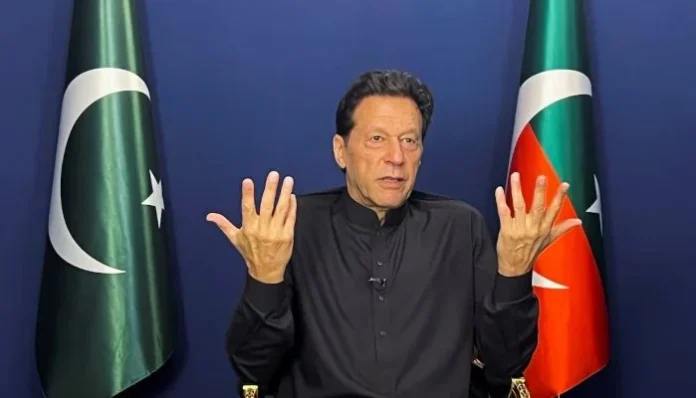The Supreme Court of Pakistan on Thursday granted post-arrest bail to former prime minister Imran Khan in eight cases linked to the May 9 riots, overturning the Lahore High Court’s earlier rejection of his petitions.
A three-member bench, headed by Chief Justice Yahya Afridi, accepted Khan’s appeals against the June 24 LHC ruling. The cases, registered at various Lahore police stations including Race Course, Shadman, Mughalpura, Sarwar Road, and Gulberg, were filed under sections of the Pakistan Penal Code, the Anti-Terrorism Act (1997), the Punjab Maintenance of Public Order Ordinance (1960), and the Arms Ordinance (1965).
The prosecution accused Khan of orchestrating a criminal conspiracy, citing witness statements and electronic media evidence. However, the bench noted that such allegations require thorough examination during trial, not at the bail stage.
Khan’s legal team argued for consistency, pointing out that other accused — including Ejaz Ahmad Chaudhary, Imtiaz Mahmood, and Hafiz Farhat Abbas — had already been granted bail. The Court agreed, applying the principle of consistency in Khan’s favor.
The ruling stated: “Without passing any findings on the legality and veracity of the said findings, our concern at this stage is confined only to the fact that such findings have been recorded at the stage of bail.”
The bench converted the petitions into appeals, granting Khan bail on the condition of furnishing a Rs100,000 bond with one surety for each case.
This development comes after the Lahore High Court in June denied Khan bail in the same cases, sparking strong criticism from PTI, which called the verdict a “miscarriage of justice.”
The May 9 riots erupted nationwide after Khan’s arrest, with protesters targeting military and civil installations, which the military later termed a “Black Day.” Hundreds of PTI leaders and workers were arrested, with many tried in military courts.




